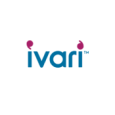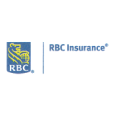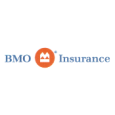We offer the best instant term life quotes in Canada
The primary purpose of term life insurance is to pass the financial risk faced by those left behind to the insurance company should you make an early exit. Most working Canadians have temporary life insurance, either mortgage insurance with a bank or a group life policy from work. These policies may be adequate, but you want to have life insurance where you are the policy owner. It is always safer and more secure to own one in the long run.
There are essentially two life insurance policies: term life insurance and permanent life insurance. Most Canadians prefer to have some coverage using the cost-effectiveness of term life insurance. At the same time, some also have permanent life insurance either in the form of whole life insurance, universal life insurance, or term-to-100 life insurance.
More Canadian families choose IDC Insurance
POLICY HOLDERS
INSURED BENEFITS
YEARS OF SERVICE
Eight money-saving tips for buying term life insurance
We have some great advice, over the years, to share that you can count on to ensure you are getting the best value out of buying term life insurance. Our best piece of advice for our clients has always been.
“It is not expensive to move the financial risks of your family or business in the event of your death to the insurance company. It is the most financially-sound and responsible thing to do.”
We strongly recommend you consider purchasing life insurance from an independent life insurance broker. Just like your investment portfolio, you want to buy the best-performing products from the best investment providers for that type of investment. It is never a good idea to buy all your investments from one company.
We operate like brokers for other financial products, a broker of the most suitable products from the best insurance companies. Our advisors are not employees of the banks, the insurance companies, or some new Internet-based life insurance sensations. We are a team of experienced life insurance professionals and family people like you. We have been doing this work for decades. We help thousands of families each year to plan for life insurance.
When you come to us with challenges, be it your lifestyle, health, finance, or other reasons, our advisors will work tirelessly to find a suitable solution by researching Canada’s entire life insurance marketplace. No one company can carry all the products to meet the needs of everyone; this is one of the reasons that make IDC Insurance the best online life insurance agency.
One of the questions we often ask is, “should I lock my life insurance rates in for 10 or 20 years?” Many will choose ten years as it is the cheapest way to purchase life insurance, but it assumes either there will be no need for life insurance after ten years or that your health will be good and you can purchase a new cheap 10-year term policy at that time. In this case, you are saving the difference between the 10-year term policy cost and the 20-year term policy cost by taking on the risk that you will be healthy in ten years.
Those who choose to take a 20-year term policy pay more upfront but the risk that they will not be insurable in ten years is zero as they have locked it in for 20 years. For example, a 30-year-old would pay $25/month for $500,000 of 10-year policy and then in ten years when he is 40 years of age¹ it would cost $106/month for the guaranteed renewal.
On the other hand, he could purchase a $500,000 20-year term policy for $36/month at age 30. So he is saving $11/month in the first ten years, but the saving will be much more when he reaches the age of 40 and needs to take the guaranteed renewal option of the original 10-year term policy. We strongly advise that it is the wiser choice if you can afford the 20-year term policy, often only a few dollars more.
¹Based on term life insurance rates standard health risk, as of Feb 1, 2015
If you have life insurance through an association or group benefits at work, consider topping it up, or if required, replacing all or part of it with your term life insurance policy. As you age, the cost of these group life insurance policies increases significantly and will frequently become more expensive just when you need it most.
Separately, if you leave or have been terminated from your place of employment or change your career, you may not have sufficient coverage during these challenging times. In situations where you’re approaching retirement, later on, you might have an option to convert it. It usually costs prohibitively to convert these policies, especially while possibly living with less cash flow in retirement.
We recommend that you have a base life insurance policy that is yours and controlled by you and complement it with a group policy so that if you leave or it becomes too expensive, you can drop the group policy altogether.
Term life insurance has a specific relatively short-term purpose which will generally not apply after age 65 and usually starts to reduce well before that age. The need usually starts to decrease as the children leave the home, and mortgages or loans get reduced or paid off.
Term life insurance is usually inexpensive for the amount you are purchasing ($1 million can cost between $28 and $45/month for a 25-year-old, male, non-smoker and between $41 and $59/month for a 40-year-old, male, non-smoker). It depends on age, gender, smoking habits and lifestyle challenges.
Term life insurance generally comes in 10, 15, 20, 25, and 30-year terms. It is now available for longer periods to provide coverage for mortgages and longer-term planning. This means that the life insurance rates are guaranteed for that period of time and they will automatically renew at a higher rate for the next term period.
A 10-year term insurance policy has guaranteed rates for the first ten years and then you can renew it for another ten years without a medical at a guaranteed premium contained in the policy.
Over half the people who renew their term life insurance policies at renewal time often pay higher premiums. So consider getting a new term insurance policy, especially with preferred term rates it might be less than you are currently paying for the old term life policy.
There is also the issue of convertibility. You will see most term insurance policies are renewable which means you can renew them for another term of say ten years and they are also convertible. Convertible means you have the right to convert all or part of the policy to a permanent insurance policy at any time during the term without a medical. You just pay whatever the rates are at the time of conversion.
If your term insurance policy was issued on a preferred basis some will allow you to convert on a preferred basis if they have preferred universal life insurance rates. This is an inexpensive option that is usually built into the policy cost and worth the extra price. A few companies will offer policies without this conversion option for a small saving.
Choose life insurance companies with the lowest renewal rates. In the example of the 35-year-old male, $500,000 of the 10-year term policy, for the lowest cost, the range of renewal rates is $125/month for the lowest provider to $161/month for the highest. Although, initially when you applied for a term policy, with a less than $2 difference between the initial ten years lowest to highest, if you are uninsurable ten years from now and have to renew your term life insurance policy, using this strategy, make sure you choose a company with the lowest term insurance renewal rates if the initial 10-year term premiums are close, which they typically are.
At one time, life insurance premiums were divided into smoker and non-smoker rates. However, the life insurance companies now have statistics that enable them to determine those who are least likely to die based on lifestyle, family history and blood pressure and some measurements they get from blood samples, such as cholesterol levels. About half the people will qualify for preferred term life insurance rates. At the time of this writing, a 35-year-old should be able to purchase $500,000 of term life insurance for about $28/month at regular rates but preferred term insurance rates could be as low as $21/month.
Ask for preferred life insurance rates when applying for life insurance. Our advisors will complete the health class questionnaire to see if you would qualify at preferred life insurance rates and will be able to provide the best term life insurance quotes in Canada.
There are significant differences between some life insurance companies in the percentage of people who qualify for preferred term insurance rates ranging from under 50% to over 75%. Remember to ask us about this when applying for your term life insurance.
If you are a smoker of the occasional cigar, some life insurance companies will consider you a non-smoker. Ensuring you are working with an experienced advisor is essential when declaring your lifestyle information.
If you are an existing term life insurance policyholder, we urge you to not renew term life insurance if your health is good as the renewal rates can be several times the premiums if you shop around for a new term policy. The assumption is that you only renew term insurance if you are too sick, or otherwise uninsurable, to qualify for a new replacement policy.
Those depend on you can use the benefit for these needs
-
Settle debt obligations: such as a mortgage, lines of credit, personal or business loans and also remove guarantees by paying off the debt
-
Make up for the missed income: also account for the impact of inflation when doing your calculations; at 3% inflation, a need to supplement the income of $25,000 will grow to $50,000 in 24 years
-
Provide for children’s future: such as education, sports commitments and other financial needs
-
Supplement retirement funding: for the surviving spouse’s retirement plan, this is important and why many need some term insurance to age 65; this is a consideration for those looking for permanent insurance as well
-
Mitigate business risks: it can fund a buy/sell agreement between shareholders or partners or life insurance on a key employee to provide the cash to find a new person, absorb the financial shock of the loss and have additional funds to pass on to the family of the deceased
Understanding renewable and convertible term insurance
Beware that not all term life insurance policies offered by some companies are the same. The term “renewable” means that you can renew your policy at the end of its term for a higher premium because you will be older without submitting medical or other evidence of insurability. However, once you have reached the age of 70 or so, the policy may not be renewable.
Separately, the term “convertible” means that you can exchange your policy for a permanent insurance policy, for final expense or estate giving, without submitting evidence of insurability.
If your immediate obligations are significant, such as a mortgage, and the funds available to spend on the policy are tight, consider taking out a policy to meet your needs. Typically, term life policies have a low cost, and you can get instant quotes for these to get some ideas. Make sure it is renewable and convertible so you will have the option to turn it into a permanent policy later on.











